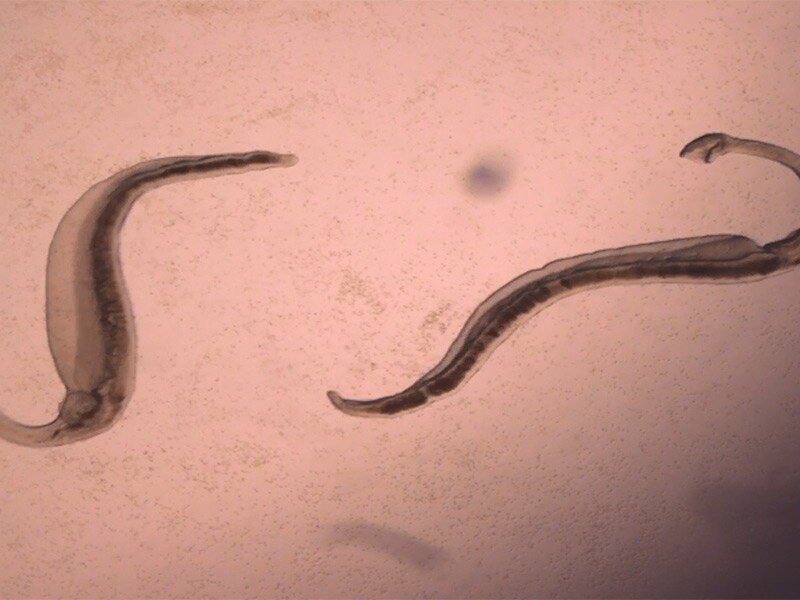Merck and Universal Agree on the large-scale production of a new pediatric medication.
16 July 2021 | Friday | News

Merck has entered into a contract manufacturing agreement with Universal Corporation Ltd., Nairobi, Kenya, for the large-scale production of a new pediatric medication.
- Universal to produce new pediatric medication against schistosomiasis on a large scale in Kenya for endemic African countries
- The new pediatric drug is currently in clinical Phase III
- Collaboration contributes to the sustainability strategy of Merck and the United Nations’ Sustainable Development Goals
Merck, a leading science and technology company, has entered into a contract manufacturing agreement with Universal Corporation Ltd., Nairobi, Kenya, a subsidiary of Strides Pharma Science Limited, India, for the large-scale production of a new pediatric medication. Production will begin once the medication has been registered. The drug is needed to treat the neglected tropical disease (NTD) schistosomiasis in preschool-aged children younger than six and is currently in late-stage development. The agreement with Universal includes building up extensive production capacities in Nairobi, Kenya for future provision of the treatment in endemic African countries. It adds to the manufacturing activities of Farmanguinhos, the federal governmental pharmaceutical laboratory of the Fiocruz Foundation in Brazil, which brings expertise in production and distribution.
“Universal has not only the necessary equipment and knowledge for this kind of production, but also a well-established quality assurance system. That is why we really look forward to establishing sustainable supply of the new medication together with our new local partner,” said Teresa Rodó, Head of Global Healthcare Operations at Merck.
“As a group, our strategy has always focused on being in Africa for Africa. We are proud that by establishing local production, we will further support the regional economy and ensure sustainable and equitable access to the new pediatric medication against schistosomiasis for the young patients in need,” said Palu Dhanani, Chief Executive Officer of Universal.
For school-aged children and adults, praziquantel is the standard of care treatment for schistosomiasis. Merck makes it available by providing the World Health Organization with up to 250 million tablets per year and will continue delivering the treatment until the disease is eliminated. However, the vulnerable group of preschool-aged children has so far been left untreated in public health programs primarily due to the lack of an appropriate child-friendly formulation of the drug. Untreated schistosomiasis can lead to potentially fatal chronic inflammation of vital organs as well as anemia, stunted growth and impaired learning ability, all of which have devastating consequences for the lives of the youngest members of the population.
The new pediatric medication for preschool-aged children, arpraziquantel, is derived from praziquantel. It is smaller and orally dispersible – i.e. it dissolves quickly in the mouth or in water and has acceptable taste properties for children. It is currently being tested in a pivotal clinical Phase III trial in Kenya and Côte d’Ivoire to generate confirmatory data for registration. The new drug is being developed by the Pediatric Praziquantel Consortium, a public-private partnership led by Merck, which addresses the medical needs of preschool-aged children infected with schistosomiasis.
“A world free of schistosomiasis is possible. With the new medication, we will be one important step closer to reaching this goal,” said Jutta Reinhard-Rupp, Head of the Global Health Institute at Merck and Chair of the Pediatric Praziquantel Consortium.
Within the scope of its Schistosomiasis Elimination Program, Merck has been fighting this NTD with its partner, the World Health Organization, since 2007. The company has donated more than 1.3 billion tablets of praziquantel, enabling treatment of 520 million school-aged children to date. The new medication will be an important building block in this program. Merck is also involved in several collaborative initiatives that build capacity and strengthen healthcare systems in low- and middle-income countries. These projects invest in local research & development, production and supply chain as well as in health infrastructure, education for behavioral change and training. The set-up of local African production for equitable access to the pediatric medication for schistosomiasis is one example of the collaborative efforts of Merck to enhance local health capacities in a sustainable manner in order to benefit global health. In this way, Merck addresses the key requirements of the World Health Organization’s 2030 Roadmap for NTDs and also contributes to the United Nations’ Sustainable Development Goals (mainly SDGs 3, 8, 9, and 17), in line with the company’s sustainability strategy.
Most Read
- Innovations In Magnetic Resonance Imaging Introduced By United Imaging
- Management of Relapsed/Refractory Multiple Myeloma
- 2025 Drug Approvals, Decoded: What Every Biopharma Leader Needs to Know
- BioPharma Manufacturing Resilience: Lessons From Capacity Expansion and Supply Chain Resets from 2025
- APAC Biopharma Review 2025: Innovation, Investment, and Influence on the Global Stage
- Top 25 Biotech Innovations Redefining Health And Planet In 2025
- How Health Systems Are Reshaping Drug Adoption, Partner Models, and Market Access in 2026
- The New AI Gold Rush: Western Pharma’s Billion-Dollar Bet on Chinese Biotech
- Single-Use Systems Are Rewiring Biopharma Manufacturing
- The State of Biotech and Life Science Jobs in Asia Pacific – 2025
- Asia-Pacific Leads the Charge: Latest Global BioSupplier Technologies of 2025
- Invisible Threats, Visible Risks: How the Nitrosamine Crisis Reshaped Asia’s Pharmaceutical Quality Landscape
Bio Jobs
- The State of Biotech and Life Science Jobs in Asia Pacific – 2025
- Avantor’s New CEO Ligner Aims to Unlock Global Potential and Deliver Shareholder Value
- AstraZeneca Commits $50 Billion to U.S. Expansion by 2030 in Biggest-Ever Global Investment
- Thermo Fisher, SAMRC, and South Africa’s Department of Science and Innovation Launch CATIR to Nurture Next-Gen Scientists
- Cube Biotech Appoints Former Sartorius CEO Dr. Joachim Kreuzburg to Board of Directors
- FDA’s AI Transition Marks a Turning Point in Drug Review: Industry Faces Pressure to Adapt Amid 20% Workforce Cut
- WuXi XDC Completes Mechanical Build of Singapore Bioconjugate Manufacturing Hub
News
Editor Picks











